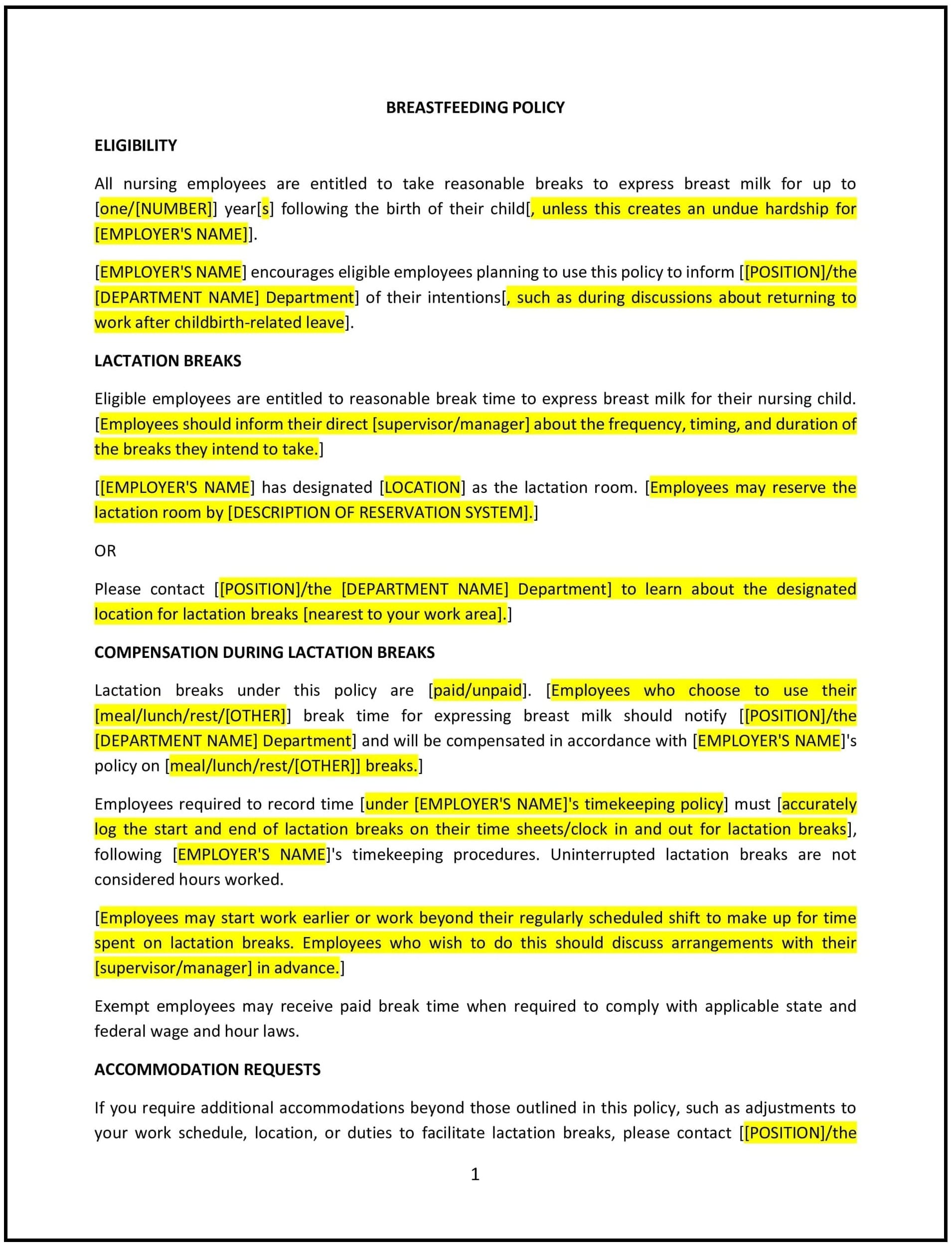Breastfeeding break policy (Maryland): Free template
Got contracts to review? While you're here for policies, let Cobrief make contract review effortless—start your free review now.

Customize this template for free
Breastfeeding break policy (Maryland)
This breastfeeding break policy is designed to help Maryland businesses support nursing employees by providing time and space to express breast milk during work hours. The policy reflects Maryland’s workplace standards, supporting compliance with the Fair Labor Standards Act (FLSA) and state-specific protections for breastfeeding employees.
By implementing this policy, Maryland businesses can promote a family-friendly workplace, enhance employee well-being, and support working parents.
How to use this breastfeeding break policy (Maryland)
- Provide break times: Allow nursing employees reasonable breaks to express breast milk, with flexibility to accommodate individual needs.
- Designate private spaces: Ensure employees have access to a private, non-bathroom space that is clean, secure, and free from interruptions.
- Ensure proximity: Locate lactation spaces close to the employee’s work area to minimize disruption.
- Communicate procedures: Clearly outline how employees can request accommodations for breastfeeding needs.
- Address storage: Offer guidance on safely storing expressed milk, such as providing access to refrigerators or allowing employees to bring their own storage containers.
- Train managers: Educate supervisors on the rights of breastfeeding employees and their responsibilities under this policy.
- Review policy alignment: Ensure the policy complies with Maryland-specific requirements, such as protections for breastfeeding in public and private workplaces.
Benefits of using this breastfeeding break policy (Maryland)
Implementing this policy provides Maryland businesses with several advantages:
- Supports employee health: Helps nursing employees balance work and breastfeeding needs without compromising their health.
- Enhances workplace morale: Demonstrates a commitment to employee well-being and family-friendly practices.
- Reduces turnover: Encourages retention of new parents by providing supportive accommodations.
- Promotes compliance: Aligns workplace practices with Maryland laws and federal regulations on lactation accommodations.
- Builds a positive reputation: Reflects the business’s commitment to fostering an inclusive and supportive work environment.
Tips for using this breastfeeding break policy (Maryland)
- Communicate early: Inform employees about the policy during onboarding and include it in employee handbooks.
- Provide resources: Ensure employees know who to contact for questions or assistance with breastfeeding accommodations.
- Maintain privacy: Design lactation spaces to prioritize privacy and comfort for nursing employees.
- Regularly assess: Periodically evaluate the effectiveness of lactation accommodations and make improvements as needed.
- Stay updated: Monitor changes to Maryland laws and workplace standards related to breastfeeding accommodations.